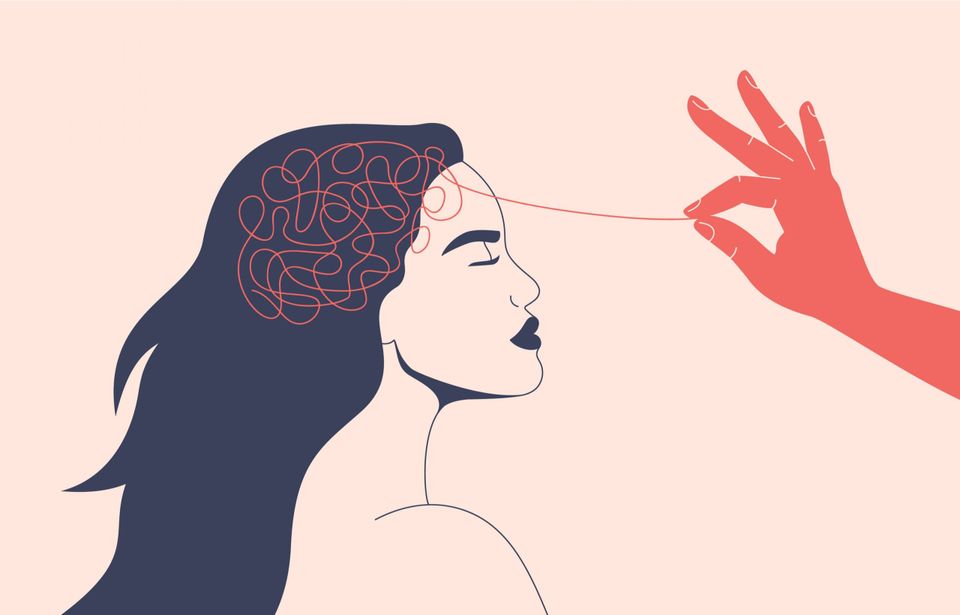5 Ways to Know You've Found the Right Therapist

I’ve seen five therapists in the last ten years. But who’s counting, right?
I have some understanding of what it’s like to not find the right therapist. Their job is to help you heal, grow, and change, but sometimes, they aren’t for you. Some therapists are specialists, some are counselors, some have good qualities but your personalities don’t jive, and some just try to shove pills down your throat.
If I’m being honest, finding the right therapist isn’t a fun process. When you search for one, you’re shown hundreds of options. And once you muster the courage to make the call, they might be out of the office, they might not be taking new clients, or they might not take your insurance.
When you finally find someone who’s prepared to take you, they ask for a summary of your problems to see if you’re a “good fit” for their services. It basically feels like this:
“Do you have insurance?”
“Y-yeah…
“So what’s the problem kid?”
“uh…everything…I guess”
“Hm, alright. Come in Monday at 4.”
“Thank you.”
I’m kidding (sort of). But trust me, finding a quality therapist is worth the effort. Here are five ways of knowing you’ve landed a good one.
1. The Right Therapist Listens and Shows Patience
This should go without saying.
If your therapist spends more time checking their watch than listening to you, you have a problem. Empathy is key to what they do, so making you feel heard and understood should be their top priority. Being heard leads to trust. You would only confide in someone you trust, and that’s what a good therapist is; A confidant, with mental health expertise.
Private practices often feel comfy, welcoming, and most importantly, safe. If you don’t feel safe, you won’t reveal yourself, and revealing is the first step to healing.
On that note, you shouldn’t feel rushed. You shouldn’t feel pressured to reveal anything purely because you’re in therapy. If your therapist is patient, they won’t force you to speak, and they will deal with any behavior you throw at them.
With a good therapist, you can act any kind of way, and they will never roll their eyes, get frustrated, or judge you for how you’re acting.
They don’t just listen either. They read your expressions, look for red flags, and see your blind spots. They know things you don’t, even if you think you’re as smart as they are.
2. They Use Evidence-Based Approaches
Having a body of work or a long history of clinical experience is a good sign. But having a therapist treat you according to your horoscope, is not a good sign.
Especially with things like trauma, therapists need to be extremely careful in their approaches. Because there are many ways of treating a person’s mind, and because everyone is different, you need to find a therapist who tailors their treatments to you but also takes the research seriously. Here are a few evidence-backed treatments you might find a good therapist using:
- EMDR (Eye Movement Desensitization Reprocessing)
A type of therapy that aims to provide release from trauma by doing exercises that mimic Rapid Eye Movement. - Mindfulness Meditation
A popular assigned treatment for anxiety sufferers. - Focusing
A method of addressing blocked emotions for clients who are too analytical and “in their heads.” - ERP (Exposure and Response Prevention)
Guided fear-facing therapy assigned to clients with OCD, anxiety, and phobias.
3. They Treat You Like a Person
Imagine a dreary-eyed doctor staring at you from across the room. He has a clipboard in his hand. You’re pouring your heart out to him and he only looks down and writes. Occasionally, he’ll look up and go, “uh-huh.” It’s more like you’re being evaluated than listened to. He clears his throat, tears a page off from his clipboard, and hands you your prescription. Have a nice day.
A good therapist understands how to interact with a human being. They treat you more like a person than a patient. They always remain professional, but they don’t stop themselves from sharing aspects of their own life to earn your trust. They aren’t cold researchers just looking to probe your brain.
Treating you like a person helps to convince you you’re not being conned. It’s a way of showing that there are empathic people in the world who truly want to help you. If you’ve been conditioned to not trust anyone, this is an important fact to establish.
4. They Give You Something Every Session
Good therapists understand that healing is a long haul. In my experience with therapy, massive cathartic moments were rare. The most significant changes manifested over long periods, day after day, one session at a time.
Whether it be a new perspective to consider, a new level of understanding about something, or you simply feel different than you did going in, you’re getting something out of every session.
A good therapist will help you discern between what was and was not your fault. Victims of abuse, or those with low self-esteem, often blame themselves for the pain inflicted on them. A therapist will help dismantle your inaccurate beliefs, so you can start moving toward self-forgiveness.
However, they won’t tell you nothing is your fault either. They don’t shame you for your actions, but they will point out when you’re cheating yourself and will want to explore why. Discouraging self-responsibility can lead to more self-blame and self-pity. Their goal should be to empower you to heal yourself, without shaming you, or talking down to you.
5. The Right Therapist Actually Seems Happy
Everyone has bad days. But a good therapist should at least be strong for their clients, and try and be an example of mental health. It would be difficult to lift someone out of the darkness if you were drenched in darkness yourself.
It is important to recognize that happiness is a real thing, even if it seems thousands of miles away.
A therapist can serve as an example of this.
I wouldn’t want to take mental health advice from someone with no verve or passion for living. A good therapist is serious when they need to be, but cracking a joke doesn’t hurt either. Anything to remind you of hope, or a better way of being.
The Value of Therapy
It can be hard to find the right therapist, but here’s what to look for:
- They listen intently and are infinitely patient.
- They use therapeutic approaches based on evidence and research.
- They treat you like a human, not a clinical test subject.
- You gain something every session, even if it’s just feeling different than when you walked in.
- They have optimism, and they can teach you something about living well.
A quality connection with a therapist can change your life. The most important thing is to be understood. If you can find that, then you’re in good hands.



